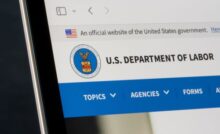Top Plan Failures Reported in the Voluntary Correction Program


As the end of the year quickly approaches there are only a few weeks left before the holidays. For many Atlanta businesses, this is a time to analyze financial performance, review operational benchmarks, assess vendor relationships, review financing and credit opportunities, and outline a path forward in 2021. There is little doubt that many plans for 2020 were interrupted by the COVID-19 pandemic requiring mid-year adjustments. Although there are still unknown variables heading into next year, management now has a better understanding of how local, state, and federal government orders may impact operations. While this planning is essential for long-term success, it is important not to forget about annual compliance requirements, including the annual review of employee benefit plans. The closing weeks of the year are a good time to review documents and operations to ensure plan compliance. If errors are uncovered, it is important to resolve them as quickly as possible. To help clients, prospects, and others, Wilson Lewis has provided a summary of the top plan failures reported by the Voluntary Correction Program (VCP) below.
Top Plan Failures
- Failure to Include/Exclude employees based on Eligibility. The IRS reports this most often occurs after a merger or acquisition takes place. For eligible employees denied the opportunity to participate, the greatest concern is they do not receive the contributions to which they are entitled to. For ineligible employees allowed to participate the company ends up making plan contributions that did not need to be made.
- Employer Eligibility Failure – This happens when the employers adopt a plan type that it is not legally allowed to adopt. This failure occurs most commonly when a government agency adopts a 401(k) plan or when certain tax-exempt entities adopt a 403(b) plan. Carefully review and ensure a plan type is permitted with the business entity before adopting a new plan.
- Failed ADP/ACP Tests Not Corrected – This occurs when a 401(k) plan fails the ADP/ACP nondiscrimination tests and corrective actions were not taken in a timely manner. When a plan fails these annual exams, it is essential to remedy the issue as required. Failure to do so will not only impact plan status but may require additional adjustments to be made.
- Failure to Follow Definition of Compensation for determining Contributions. Each plan identifies the type of compensation which should be included when determining contributions. The error occurs when an employer includes bonuses, commissions, or overtime when the plan excludes them. The oversight results in a participant receiving more than, or less than, the required amount.
- Failure to Provide Minimum Top-Heavy Benefits – The law requires that when the account balances or accrued benefits of key employees (oftentimes owners) comprises a substantial portion of the plan’s assets (60% or greater), then non-key employees are entitled to receive a minimum benefit or contribution.
- Failure to Comply with Minimum Distribution Rules – Plan participants are required to receive distributions when they reach a certain age. The failure occurs when the plan does not make required distributions to eligible participants. Unfortunately, when this happens, regulations require the participant to pay an excise tax of 50% on the amount of the required distribution, if not made in the appropriate timeframe. A waiver is possible under certain circumstances.
Contact Us
A regular review of plan operations is essential to ensure errors are identified and remedied as quickly as possible. In addition, it will minimize the number of fees and penalties associated with resolution. If you have questions about the information outlined above or need assistance with your employee benefit plan audit, Wilson Lewis can help. For additional information call us at 770-476-1004 or click here to contact us. We look forward to speaking with you soon.
Recent Posts
Draft 2025 Tax Bill Introduced with Potential Long-Term Impact
On May 9, 2025, the House Ways and Means Committee released the first details of…
How a Cost Segregation Study Can Accelerate Tax Deductions
Commercial property owners are always looking for ways to reduce tax liability and increase cash…
Discover New Savings Through State Tax Incentives
The last few months have brought economic uncertainty to South Carolina businesses across several industries.…
Relief on Tap for Georgia Taxpayers
Earlier this month Georgia Governor Brian Kemp signed two important parcels of legislation into law.…
Preparing for an ERISA Audit
Preparing for an ERISA plan audit often starts with understanding what the audit looks for…
Auto Dealership Benchmarking
Atlanta car dealerships are constantly searching for ways to increase new and used car sales.…


